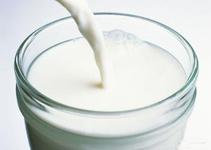 On August 4, the New Zealand dairy giant Fonterra Group released the news that botulinum was detected in three batches of concentrated whey protein. This undoubtedly poured cold water for those who believed in “foreign milk powderâ€. The myth of 100% pure “milk milk powder†was broken.
On August 4, the New Zealand dairy giant Fonterra Group released the news that botulinum was detected in three batches of concentrated whey protein. This undoubtedly poured cold water for those who believed in “foreign milk powderâ€. The myth of 100% pure “milk milk powder†was broken. It is worth noting that this transnational dairy giant has been “secondary†this year on the “pollution†issue. In January this year, the company's milk powder was detected to contain trace dicyandiamide. Moreover, as early as March of this year, the company concerned had discovered the potential quality problems of its own products, but it did not announce the test results until four months later. This has caused the problem to be repeatedly delayed and spread continuously. The reason why the test results are “late and late†makes people suspicious.
This "delayed report" can not but remind people of the "toxic feed" incident that occurred in North Rhine-Westphalia in late 2010. At the time, local unscrupulous manufacturers used fatty acids for industrial purposes for the production of animal feed fat, which led to a 78-fold excess of dioxin content in some feeds. As early as March of that year, these toxic feeds had already entered the market and the incident was concealed for 9 months.
In fact, the problem of food safety in Western developed countries is far more than this, and many countries have been plagued by “toxic foodâ€. From the mad cow disease that ravaged Europe in the past to the salmonella outbreak in the United States, to the turmoil in South Korea's "dumpling dumplings," the toxic "foreign foods" that were found involved meat products, eggs, popsicles, hot dog chili sauce, papaya, peanut butter, and frozen dumplings... ...the variety can be described as varied.
In addition to "toxic food," foreign shoddy and pilferage are also common. The Europeans, who were proud of having the world's most stringent food safety system, earlier this year planted a head-turn on the "horse turmoil." Europeans used horse meat to feed beef, and Americans were exposed last year to mislead consumers by using almonds to fake large almonds.
From this perspective, food safety is a common problem, and blindly obsessed with "foreign foods" is not a wise move. "Ocean food" is not necessarily the best, "domestic goods" are not all defective products. According to the "Global Food Safety Index Report" recently released by the British Economist Intelligence Unit, China ranks 42th out of 107 countries.
Of course, “there are less than enough, more than enough†does not mean that China's food problem is not prominent and severe: water injection meat, leather milk, cooking oil, Sudan red, melamine, plasticizer liquor ... ... repeatedly challenge the country's stomach.
Food is food to safety first. Food safety deserves people’s attention. When food safety is increasingly threatened and food safety issues continue to break through national borders, it should not be too superstitious for “foreign foodâ€. Treating “foreign goods†and “domestic goods†should be treated in the same manner and rational customers should be treated.
Fascia Gun,Home Fascia Gun,Home Therapy Device,Handheld Fascia Gun
Puyang Degren Medical Equipment Co., Ltd. , https://www.degrenyuwei.com